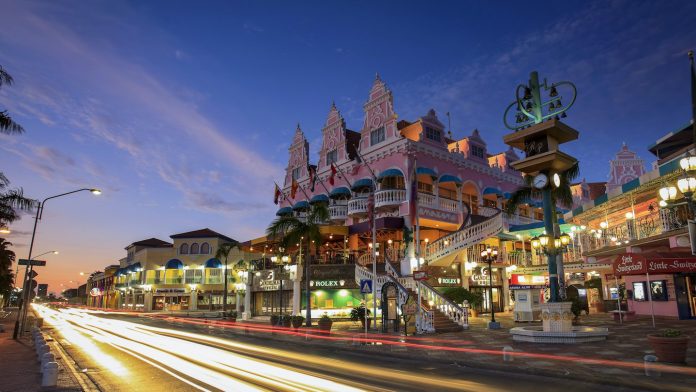Every week, Etnia Nativa shares a new episode on culture and heritage, focusing on the importance of defending Aruba’s true identity. This episode is about how exactly 199 years ago the name of our capital city, Oranjestad, was first proclaimed.
In episode 29, of 2019, we shared the story of how Oranjestad, our capital city, had been founded, explaining that in the year 1816, the area called “Horses Bay” was perceived as having moderate prosperity since it had a population of seven hundred people, among whom were some merchants, a considerable group of sailors, a few landowners, and even two goldsmiths. A prosperous growth that, during the following fifteen years and after the discovery of gold on the island, allowed more than a thousand new inhabitants, mostly merchants, to settle in this coastal area known as Playa. This is how the town began to grow, which, at a certain point, needed a structure and an official name.
In the year 1821, Jacob Thielen I was appointed commander of Aruba. He was the son of a prominent family that had settled in Curaçao a few generations before. As Secretary of Justice, the Council of Curaçao favored Jacob’s conditions to bring the necessary reforms to our island. His dedication and work favoring economic growth led to the implementation of fundamental and necessary changes, such as the government regulations of 1823. It was on August 3rd, 1824—a fact known due to direct family history—that Jacob Thielen I proposed the name Oranjestad (Orange City) to the town located on Horse’s Bay. A name that, as soon as it was heard, was acclaimed by all people during that occasion, which without exception burst into cheers of “Long live Oranjestad!” “May it grow and prosper.”
Before 1790, the south of Savaneta was the capital of Aruba, but Oranjestad turned out to be more accessible for ships to lay anchor.
What remains of that old Oranjestad proclaimed by Jacob Thielen I are e few constructions known as Fort Zoutman, dating from the year 1796, whose exterior walls are the oldest building in Aruba (episode 214). The tower located in front of the current entrance to the fort was built in 1868 to meet the need for a public clock and had nothing to do with the fort. Once its construction was complete, it was conditioned as a lighthouse, and a clock was installed in 1929. It served as a lighthouse until 1963, when the western entrance to the port was inaugurated. As an inscription on the tower, we can see the initials W III, which means William III, who was the reigning king during its construction.
Among the oldest buildings in Oranjestad, we find the old Protestant temple built in 1846, which is located near the Protestant church in the current Wilhelminastraat, and is the second oldest building on the island after Fort Zoutman. In front of the old Protestant temple there is a government building dating from 1911 and next to it was the building constructed between 1887 and 1888, which was initially a school before becoming a barracks during World War II and in 1955, was destined to be the public library, currently the, Algemene Rekenkamer van Aruba (General Audit Chamber of Aruba). On the same street, we will find two other houses of typical construction: one built in 1923 as a doctor’s residence, serving today as our town hall, and opposite the ruins of a mansion built in 1937, currently under restoration.
If you are keen to explore Aruba’s deep heritage, Etnia Nativa happens to be the place of choice in its category because it is Aruba’s unique “cabinet of curiosities” (episode 211) for immersing oneself in the rich history and cultural heritage of Aruba. You will be in the hands of a first-hand connoisseur, owner, and descendant of the late Thielen family, older native Aruba settlers, and other selected families. Etnia Nativa distinguishes itself from the rest as a hidden gem by offering a personal native touch that adds depth and authenticity to your destination experience, providing visitors with an engaging and meaningful connection to the island’s history, valuable insights, and a deeper understanding of Aruba’s heritage.
Appointments are required for a personalized experience. E-mail at etnianativa03@gmail.com or WhatsApp (messages only) at +297 592 2702.

















